![]() — หน้าแรก — เกาะติดข่าว
— หน้าแรก — เกาะติดข่าว
ข่าวเศรษฐกิจและธุรกิจประจำสัปดาห์
-
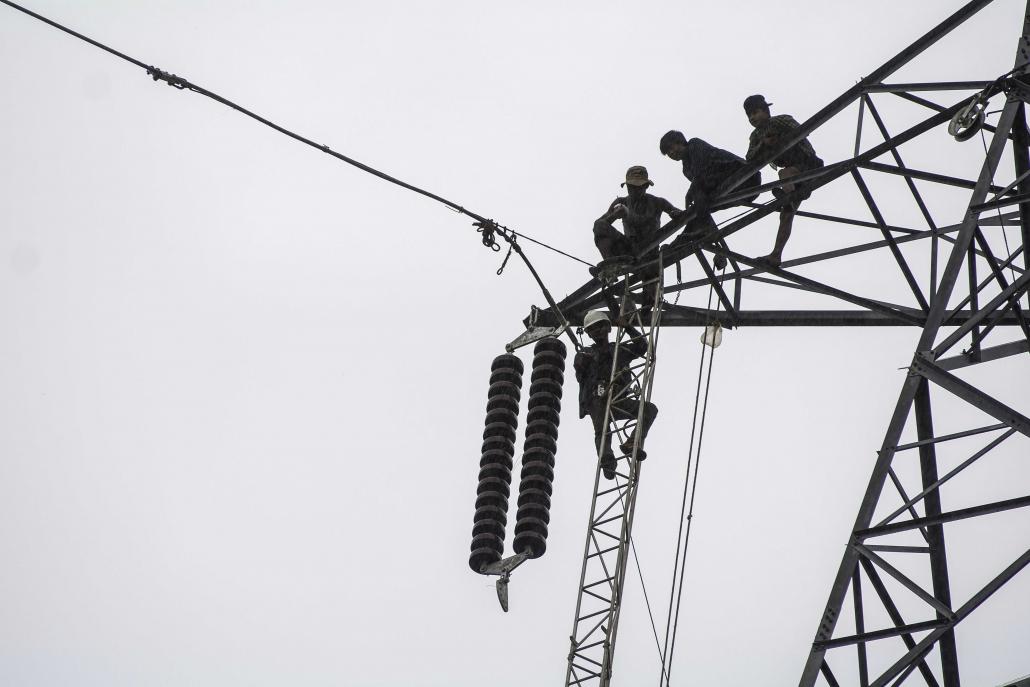
Although Myanmar’s government recently gave the go-ahead to some of the largest power projects, it now faces a major short-term challenge to cater to the country's energy needs without blowing the budget
BILLIONS of dollars, thousands of megawatts: the government’s recent decision to green-light four power projects was the biggest development in the sector for several years. But in the background, the Ministry of Electricity and Energy is dealing with a more immediate problem: How to meet Myanmar’s growing short-term power needs without blowing the budget. On January 5, it announced a tender for two rental power projects in Mandalay Region, at Myingyan and Kyaukse, with the winning bidders to be granted a five-year concession. The new plants will replace rental power projects operated by British firm Aggreko (95 megawatts) and APR Energy (102MW) from the United States. In place since 2014, these contracts were shorter – from 12 to 18 months – and have already been extended several times. U Han Zaw, chief engineer at the Electric Power Generation Enterprise, told Frontier that the tender should result in a lower tariff and more efficient power generation. He said the longer contract on offer would also “create a level playing field” by enabling more companies to participate. -
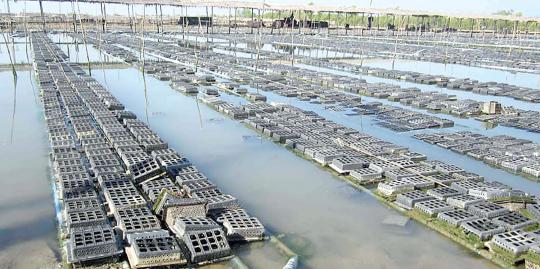
Private banks granted a Ks 868.733 billion loan to small and medium enterprises (SMEs) and Ks 319.228 billion to the agricultural and livestock sector (U Soe Thein, Vice Governor of the Central Bank of Myanmar)
Until December, 2017, private banks have granted a Ks 319.228 billion loan to the agricultural and livestock sector and Ks 868.733 billion to small and medium-sized enterprises, said Soe Thein, Vice-governor of the Central Bank of Myanmar. MP Kyaw Htwe representing Yangon Region Constituency-8, raised a question on the policies set for the establishment of private banks by citizens and the loan scheme for farming and SME sectors, at the session of Upper House parliament on March 14. In replying to the question, Vice-governor Soe Thein said the central bank had no separate record of the exact percentage of loans granted to farming and SMEs sectors. This is the collection of figures from the Ministry of Planning and Finance, the Ministry of Industry, State-owned banks and private banks. -
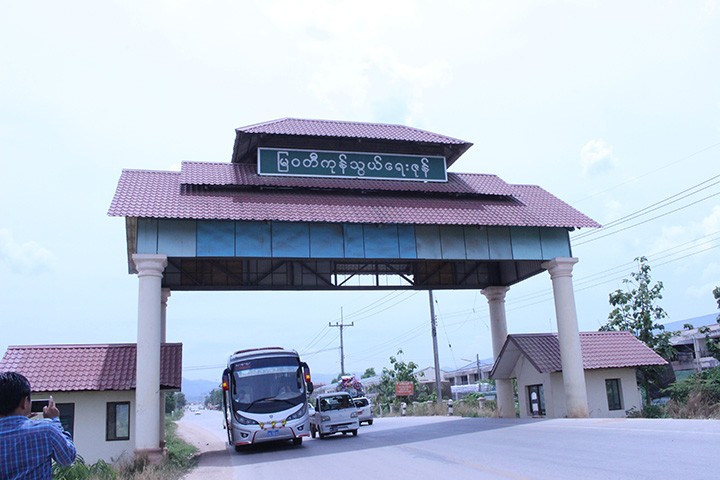
Thailand has proposed to use the Baht as the designated currency for cross border trading between Myanmar and Thailand (Ministry of Commerce)
Thailand has proposed to Myanmar to designate the Thai Baht as the currency of choice for bilateral trading in order to stabilize the cross-border trade between Myanmar and Thailand, according to the Ministry of Commerce. “Thailand proposed to use the Baht for trading with Myanmar because Thai traders and investors face difficulties due to the fast fluctuation of Myanmar currency when they conduct business transactions,” said U Yan Naing Tun, director general of the Department of Trade. At the meeting of the Myanmar- Thailand Border Trade Joint Committee, Myanmar and Thailand discussed how to deploy single-stop inspections at border gates between Myanmar and Thailand, launch new border trade camps, facilitate in importing Myanmar’s rubber and agricultural produce, to maintain equal rights for immigration workers and to exchange trade information. -
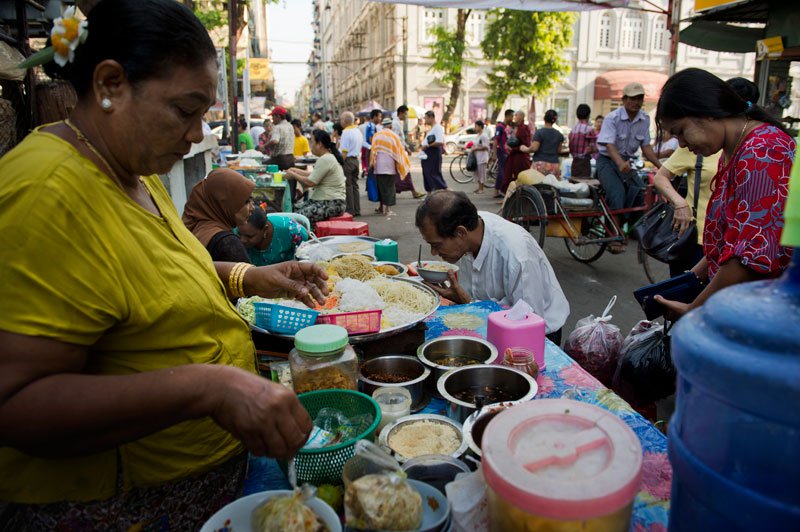
Union of Myanmar Federation of Chambers of Commerce and Industry (UMFCCI), Myanmar Young Entrepreneurs Association and DaNa Facility supported the inclusive business workshop in Yangon to promote economic growth by creating and expanding opportunities for the poor
This week business leaders from across Myanmar joined with policy experts and members of the donor community in Yangon to explore the benefits to Myanmar of adopting “inclusive business practices” that help the poor and boost businesses and the economy as a whole. This Inclusive Business Workshop was facilitated by the DaNa Facility, the Union of Myanmar Federation of Chambers of Commerce and Industry (UMFCCI) and Myanmar Young Entrepreneurs Association (MYEA). Inclusive Business is an innovative approach to promoting growth in an economy which sees the private sector contributing to inclusive economic growth by creating and expanding opportunities for the poor. Inclusive businesses are always commercially viable companies whose core business is to provide, at scale, innovative and systemic solutions for poor and low-income people. The Inclusive Business approach focuses on the concept of the "triple win" where the interests of the companies, the poor and governments are all served and all three benefits. -
Japan government agreed to lend over US$ 800 million for Dawei Special Economic Zone through the Japan International Cooperation Agency (JICA)
The Japanese Government is planning to provide assistance for Dawei Special Economic Zone through The Japan International Cooperation Agency (JICA), according to Mr. Masayuk KARASAWA, JICA’s Country Representative to Myanmar. He said so in his remarks at the ground breaking ceremony for the JFE MERANTI Myanmar plant held on March 1 in Thilawa SEZ Zone (B). Seeing the success in Thilawa Special Economic Zone, Tanintharyi Regional Government is working on strategy for the region’s development plan, and he said that Japan will get involved in the SEZ depending on Myanmar’s government policy. “We are helping laying out a development plan, and also conduct surveys of what would be needed such as a port or electricity. The Myanmar government will consider what it should do based on the survey. We will get involved in the SEZ depending on how the development plan will be carried out,’’ Mr. Masayuki KARASAWA added. -
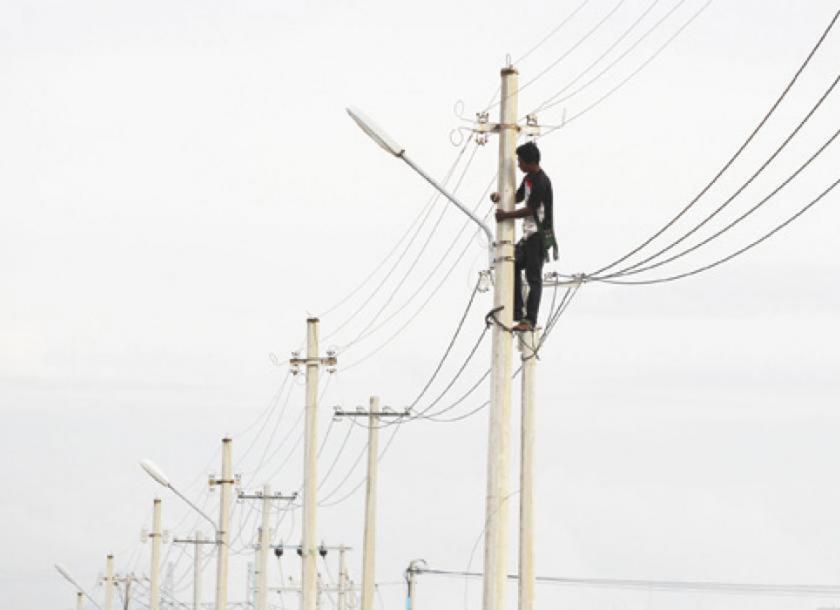
Ministry of Electricity and Energy (MOEE) is still negotiating the terms of several power purchase agreements (PPA) on liquefied natural gas (LNG)
The Ministry of Electricity and Energy (MOEE) is still negotiating the terms of several power purchase agreements (PPA) which will determine the amount of power that will be purchased and distributed to the public over the next three years. The PPAs are being discussed with parties involved in importing and converting liquefied natural gas (LNG) to electricity in Myanmar. If successful, it will be the first time Myanmar is using LNG to produce electricity. But electricity generated in this manner will not come cheap. “It could add $1-$2.5 per million British Thermal Units (mmbtu) on top of the LNG import price,” Prasanth Kakaraparthi, an analyst at Wood Mackenzie, told The Myanmar Times in February. That implies that electricity costs could rise in the future. Currently, for residential use, K35 is collected per unit if the electricity used is between one and 100 units; K40 is collected per unit if it is between 101 and 200 units and K50 collected per unit for over 201 units. For businesses, K75 is collected per unit if the electricity used is between one and 500 units and K100 collected per unit for over 3,001 units, The Myanmar Times understands. -
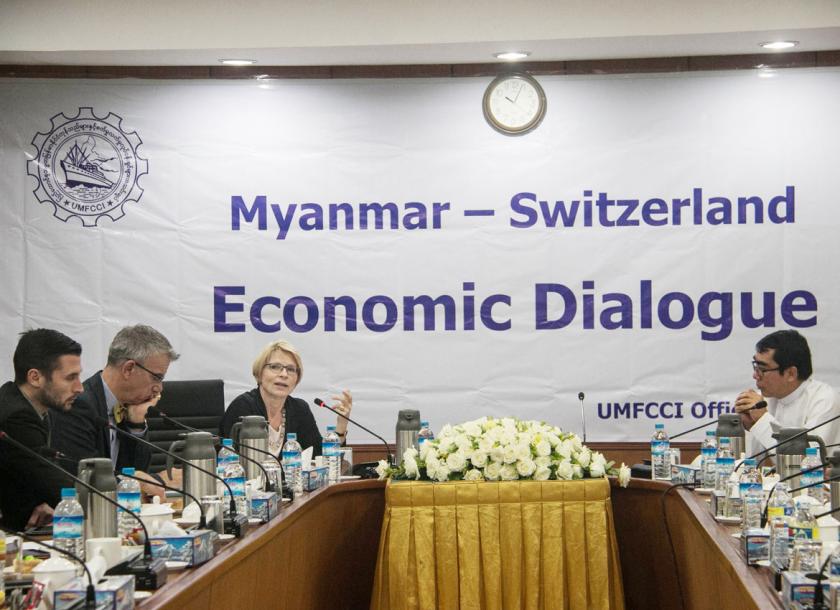
Myanmar and Swiss businesses discussed need for intellectual property (IP) and investment protection in Myanmar
Members of the local and Swiss business community discussed issues pertaining to intellectual property (IP) and investment protection community at the Myanmar-Switzerland Business Dialogue held Tuesday in Yangon. Delegates represented businesses from the high-tech manufacturing, electricity and energy, insurance, healthcare and food production sectors. “There have been companies that have delayed their investments in areas like manufacturing because of the absence of a functioning IP law in the country,” said U Thaung Tin, vice chair of the Union of Myanmar Federation of Chambers of Commerce and Industry. Currently, an IP law has been drafted and submitted to Parliament. “Myanmar and its partners in the EU and Switzerland have discussed investment protection issues for a long time. We are at the stage of coming to several agreements although nothing has been signed yet,” he said. -
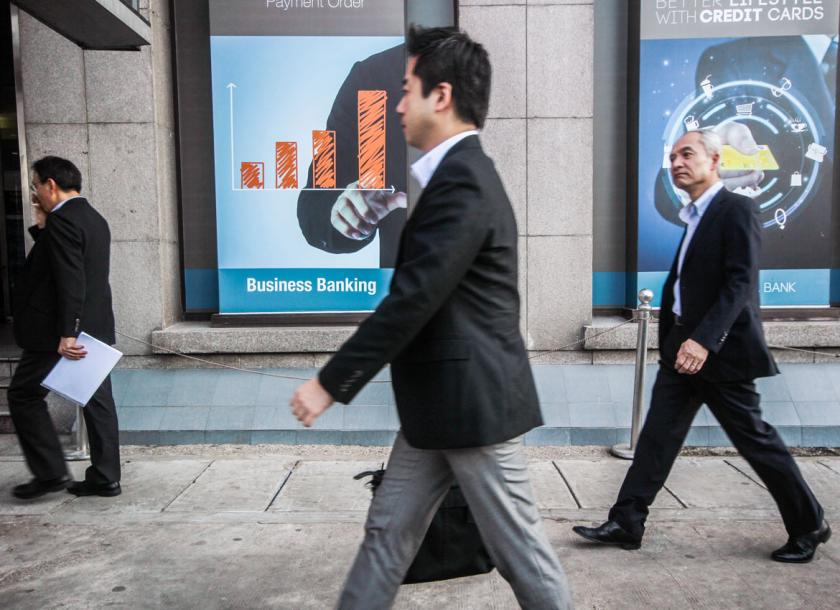
Company registration fees for Small and Medium Enterprises (SMEs) will be halved from K 500,000 to K 250,000 from April 1 onwards (Directorate of Investment and Company Administration – DICA)
Company registration fees for small and medium enterprises (SMEs) will be halved from K500,000 to K250,000 from April 1 onwards, according to a statement issued by the Directorate of Investment and Company Administration (DICA) Tuesday. The latest move comes after DICA, together with the Ministry of Planning and Finance halved company registrations fees for private companies to K500,000 on June 1, 2016. The company registration fees have been reduced again to facilitate business and make incorporation of new companies easier. “The main point is to encourage more SMEs to emerge. In addition, new company registrations can also be done online,” said U Than Aung Kyaw Deputy Director General of DICA. The move also comes after the Union Parliament approved the New Myanmar Companies Law on December 6, 2017, replacing the former 100-year-old Myanmar Companies Act with the aim of improving the ease of doing business, promoting private sector development and modernising the legal framework for companies in Myanmar. -

Myanmar trade show aiming to connect local and international business will take place in Yangon during 28-30 March 2018
Once an outlier in the region, Myanmar is now enjoying a period of exceptional growth. Myanmar has the fastest-growing economy in ASEAN, and is seen as a source of regional strength and a destination of opportunity. Further liberalization is planned, international investment is expected to remain strong and the domestic economy is becoming increasingly efficient. Optimism reigns as the experiment in reform has proven durable. While many emerging economies struggle to maintain a high rate of expansion in the face of global uncertainty, Myanmar is set to remain on course. Myanmar is one of the potential markets for foreign enterprises to invents, especially in textile and garments, beauty, sports, leisure and the food industry. However, investing in the Myanmar market is not always easy because there are many policy and legal issues as well as distribution challenges. Understanding these difficulties, VEAS Co., Ltd has organized a series of exhibitions including Myanmar Gar-Tex Expo 2018 - The 2nd International exhibition on Textile & Garment industry for Myanmar; Beauty Connect Myanmar 2018 - The 2nd Myanmar International Exhibition & Conference on Cosmetic, Beauty, Hair & Spa; Functional Food Myanmar 2018 - The 2nd International Trade Show for Functional Food Industry in Myanmar; Myanmar Sports & Leisure Expo 2018 - The 2nd Myanmar International Sports & Leisure Industry Expo. -
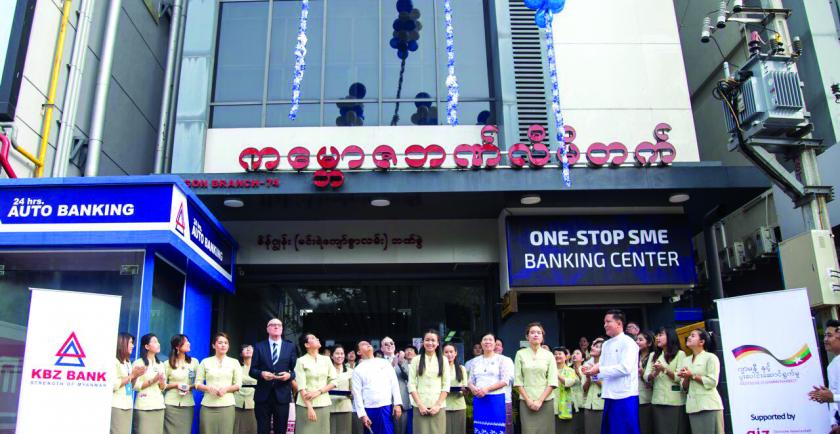
Kanbawza Bank (KBZ) unveiled a new One-Stop SME banking centre to provide greater financial inclusion in Yangon
YANGON, MYANMAR, 7 MARCH 2018 – KBZ Bank have unveiled a new One-Stop SME Banking Center (OSBC) offering a range of services to meet the needs of growing businesses, such as improving access to finance and financial literacy. KBZ Bank supports SMEs with comprehensive, holistic solutions and the KBZ One-Stop SME Banking Centre will be vital to improving the banking experience by facilitating the expansion of enterprises across industries, sectors and regions of Myanmar. It will operate as a world-class hub for information, staffed with banking experts who act as trusted advisors on all aspects of SME business needs. Located at Yangon City St John shopping mall, conveniently close to the Union of Myanmar Federation of Chambers of Commerce and Industry (UMFCCI) building, KBZ SME Relationship Managers at the centre will listen actively to customers’ business concerns, expectations and challenges. Based on their industry, cash flow projection and expansion plan, KBZ Bank can offer structured solutions and advice, tailored to each individual business.
เกาะติดข่าว
Copyright © 2014 Business Information Center All Rights Reserved.







